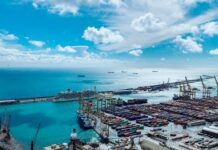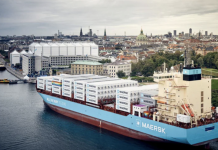
Developing the successor to the hard copy bill of lading (B/L) is an industry aim that appears to be perpetually out of reach. Recently the Digital Container Shipping Association (DCSA) announced there were big savings, US$4 billion, to be made through eB/L’s.
That is the, so-called holy grail for the lines, but for one lawyer at least the industry remains as far away from achieving its target as when he started as a junior practitioner more than 25 years ago.
“In essence there has been very little change in my experience,” said George Panagopoulos, who heads up the Greek office Waterson Hicks.
“When I was a trainee with the maritime group of the firm where I trained, we were told that bills of lading etc will all be replaced by EDI and other electronic forms. In my experience although we no longer receive original bills of lading and charterparties (we now receive pdf versions electronically) we are still dealing with the same basic documents and contacts,” added Panagopoulos.
The DCSA recognises that the industry’s aim of achieving the eB/L has remained “elusive” over the years. There remain a few obstacles admits the DCSA, but, “Eliminating paper from the shipping transaction will make every aspect of commercial container shipping better, faster, cheaper, more secure and environmentally friendly,” argues the digital association.

That maybe so, but Panagopoulos argues that, “To have a fully electronic system requires parties in all places of the world to be using such systems. It requires more of an international coordination and there seems little sign of that happening at present.”
Panagopoulos went on to say, “I think the whole thing would require a co-ordinated effort globally or a system in place that would be generally accepted and applied. Particularly, in developing nations and with smaller companies they may not have the technology, or it may not be as easy to implement such methods.”
If the industry can develop the eB/L then the benefits are massive, and not just in company income, but in security and the environmental benefits, according to DCSA.
There has been a “critical need for an eB/L since the first efforts to digitise bills of lading in the late 90s,” admitted the DCSA.
Further recognising that there are a number of obstacles still to be overcome before the “holy grail” is attained.
One of the obstacles remains the lack of a standardised approach to digitalisation within the maritime sector. André Simha, Global Chief Digital & Innovation Officer for MSC and DCSA Chairman recently noted, “The COVID-19 situation is bringing the core strengths of a standardised eBL to the fore. Cargo in ports cannot be gated out because of paper that is stuck elsewhere due to airfreight delays caused by the pandemic.”
In a financial modelling exercise carried out by DCSA, the association said that switching to eB/L’s would save the industry US$4 billion in costs, if just 50% of cargo was transported on electronic documentation. By comparison to eB/L’s, processing paper documents works out at three times the cost of its electronic replacement.
According to the DCSA, “Three major factors drive adoption [of eB/L’s], and the obstacles in these areas that have slowed the industry down are either on track to be resolved or have a path to resolution.”
It is accepted that “robust technology” is critical for the secure introduction of electronic documentation, which will maintain “the integrity and uniqueness of the document as it makes its way along the supply chain.”
Advances such as distributed ledger technology which only allows changes to documents if the entire group agrees, and then that document cannot be changed, make the system more secure and could allow for any changes that need to be made to the documents.
DCSA also acknowledges that there may be concern over legal enforceability. “Not every government has provisions for an electronic form. Many of them require paper, and the lack of industry-standard language and definitions have made it impossible for them to ‘rubber stamp’ an electronic replacement,” said the DCSA statement.
Covid-19 is changing this mindset, and some progress has been made, while the International Group of P&I Clubs, which insures the sector, have increased approvals of eB/L solution providers, with two added in the last six months, making a total of six approved so far.
It is at this point that DCSA agrees with Panagopoulos’s analysis, acknowledging that, “For any robust technology, such as blockchain or digital ledger, to safely deliver an eB/L from end-to-end, data model and transmission standards need to be in place.”
In such a scenario the group says it is important for all those in the supply chain to be using “the same data format and communication standards, [so that] it can be transported seamlessly regardless of pre-existing relationships between stakeholders.”
Digital standards will enable interoperability between all stakeholders, such as system providers, shippers, carriers, banks and regulators. But those standards are the holy grail, and it remains elusive at this moment.
Nick Savvides
Managing Editor





